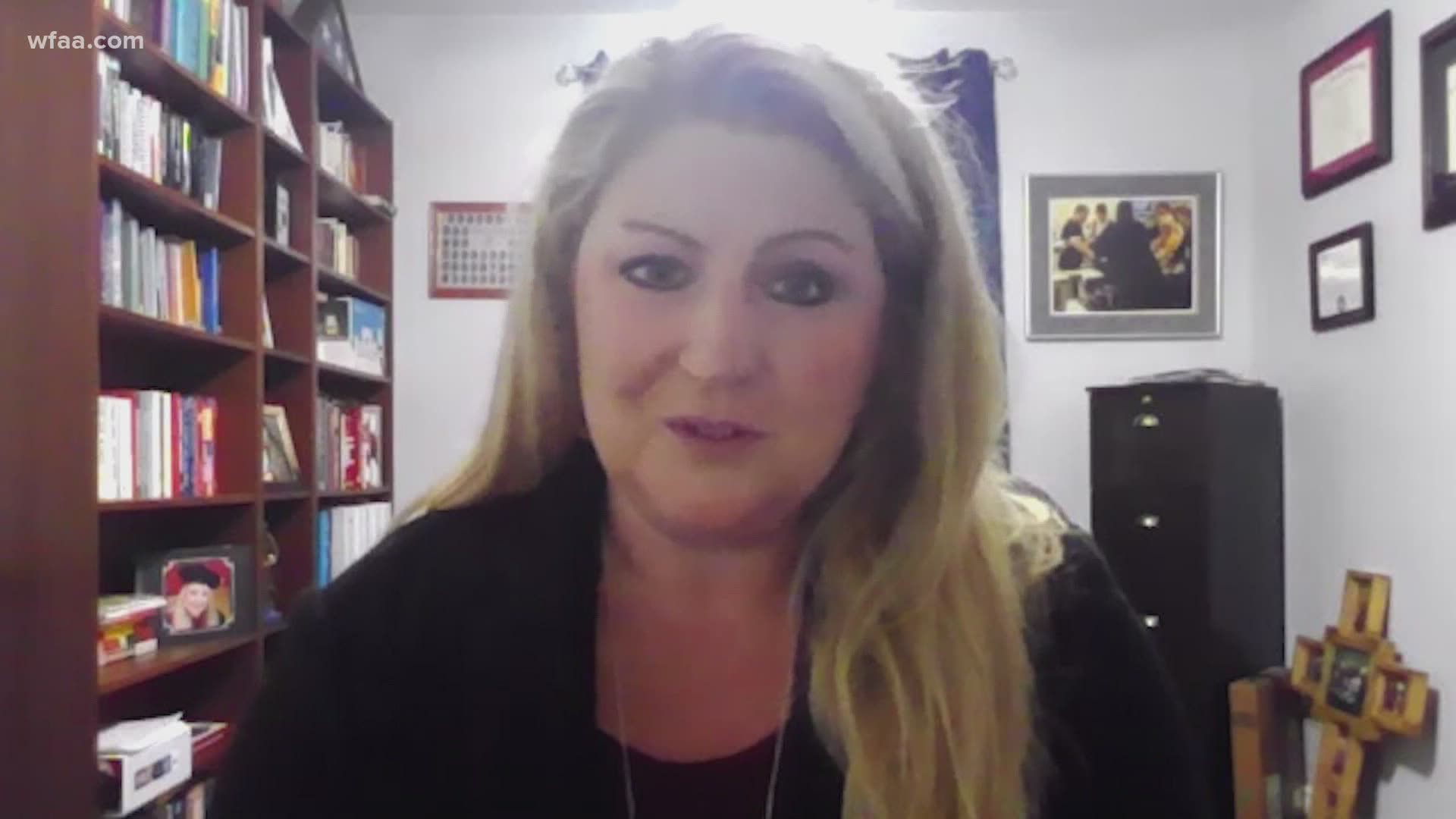DALLAS — What’s it like to be inside North Texas hospitals fighting COVID-19? In a Facebook post from UT Southwestern Medical Center, Dr. Iqra Zakaria summed it up in a quote.
"There's baseline anxiety and uncertainty bubbling under the surface at all times, like an unnerving current,” said the first-year resident who's working in Parkland Hospital's Emergency Department.
Her sense of concern is shared statewide. Serena Bumpus is the director of practice for the Texas Nurses Association, and her members are watching and working as patients and the number of hospitalizations rise.
"Looking ahead at 4th of July, there’s a great fear of the impact that could have," she said. "Will we have the space and will we have the staff to continue to manage that."
She says concerns nurses have had for months continue to grow, just like the numbers. Like personal protective equipment, which Bumpus says still isn’t up to pre-pandemic standards.
"Many facilities are having a hard time getting those disposable gowns that we’d usually use," she said. "We’ve resulted in using gowns that could be laundered for isolation gowns."
The battle over masking can feel maddening.
"The more we can make that sacrifice for five to 30 minutes when we go out in public is very small in comparison to the fact that our nurses are wearing a mask and full protective gear for 12 to 14 hours," said Bumpus.
Finally, you can put two hospital beds in a room to help the rush of patients, but you can’t clone people.
"That becomes a question of, 'Where do we get the nurses from to care for all of those patients?'" said Bumpus.
It's an issue serious enough that the state is asking medical professionals willing to help to sign the Texas Disaster Volunteer Registry.
Anybody who’s in the healthcare field that would like to put their name in their in the event we need to start drawing volunteers for additional efforts, this is the time to do that," said Dr. John Zerwas, the expert who is advising Governor Abbott on hospital capacity.
If you’re not a doctor or nurse, but still want to help inside our hospitals, you can.
"In order for us to take the best care of Texans in our hospitals, we need the public to also change their behaviors," said Bumpus.
More on WFAA:
- Texas needs to at least triple its number of contact tracers, according to one research model
- COVID-19 updates: Hospitalizations continue surge as North Texas reports more than 1,000 patients for first time
- 11 Dallas police officers test positive for COVID-19
- European Union considers blocking US travelers due to coronavirus

